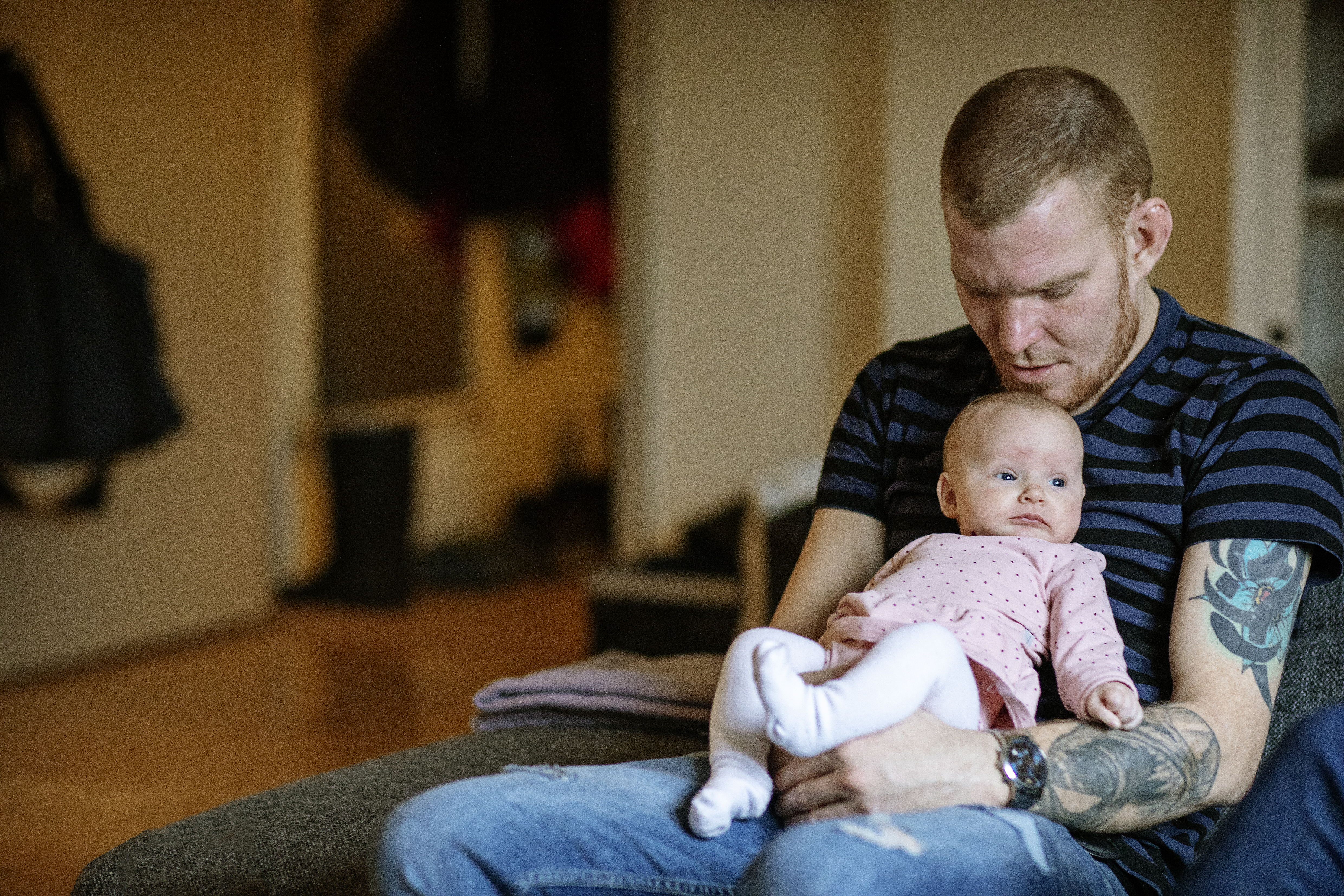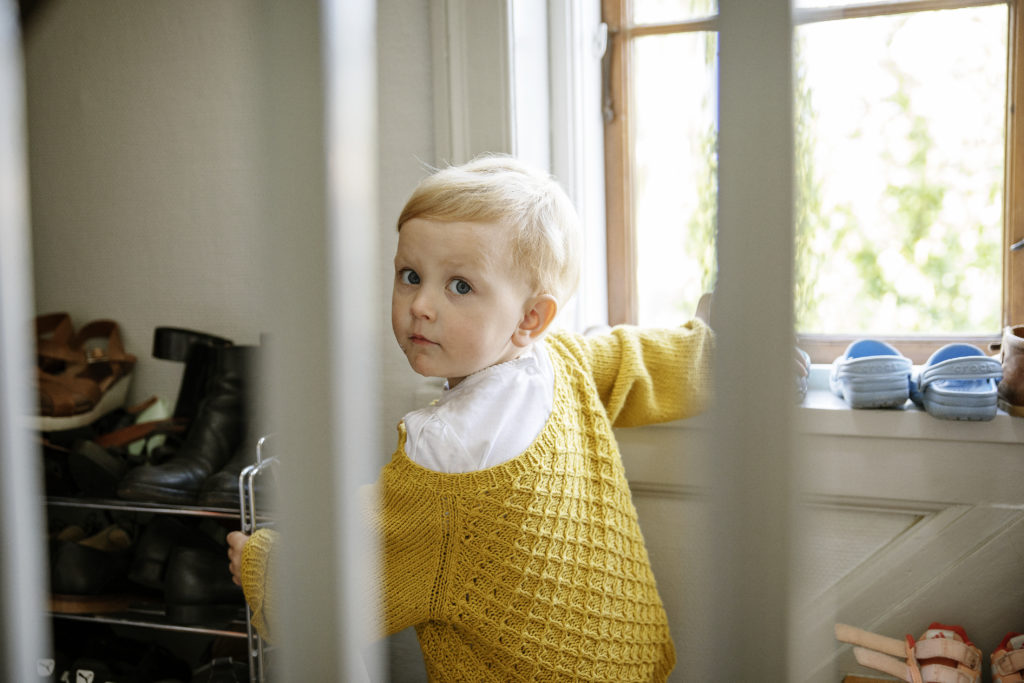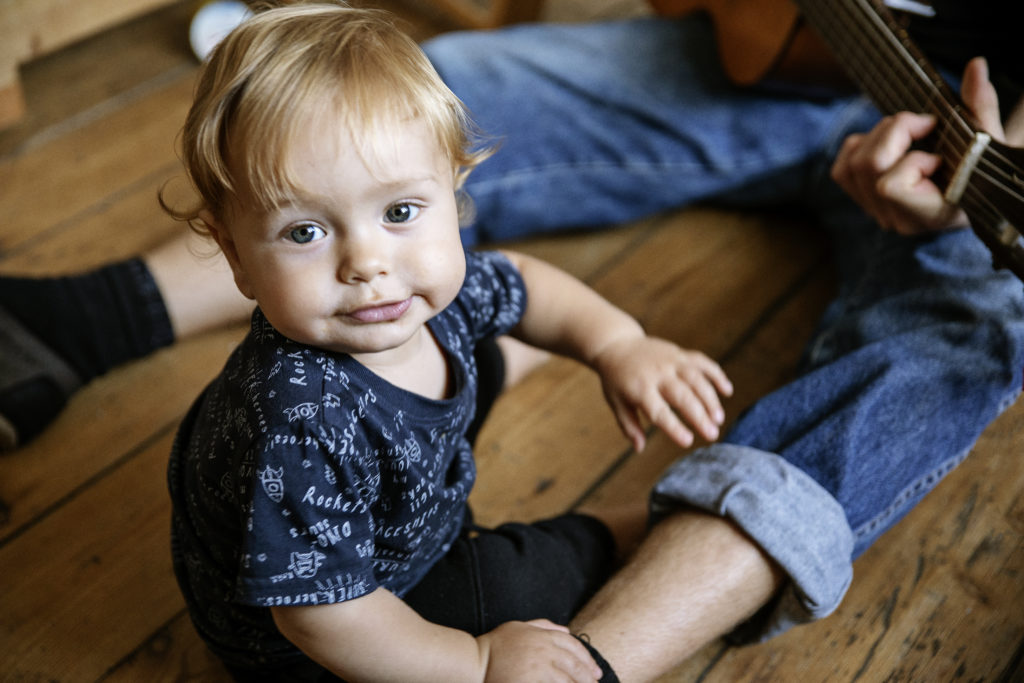Når det gør ondt at blive far
En fødselsdepression er en lidelse, der kan bryde ud i forbindelse med at blive forælder og kan ramme både far og mor. Depressionen kan opstå allerede, mens I venter barn eller efter fødslen. Omkring 7 til 10 procent af mænd, der bliver fædre, får en fødselsdepression. Heldigvis kan en fødselsdepression behandles, og jo hurtigere du kommer i behandling, jo større er dine chancer for at komme smertefrit gennem processen.
Hvordan ved du, om du har en fødselsdepression?
Hvis du har en fødselsdepression, kan du for eksempel få depressive tanker eller angst, blive vred eller få lyst til at stikke af fra det hele. Nogle af de tilstande og tanker, der kan pege på, at du er ved at få eller har fået en fødselsdepression kan være:
- Hjælpeløshed: ”Jeg kan ikke leve op til det ansvar”, ”Jeg bliver bare en elendig far”, ”Jeg kan ikke give tilstrækkelig god omsorg” og ”Jeg kan ikke overskue det hele”.
- Håbløshed: ”Mit liv bliver ødelagt”, ”Vi skulle aldrig have fået barn”, ”Jeg kan ikke klare det”, og ”Der er ikke noget, der hjælper”.
- Selvnedvurdering: ”Jeg er en dårlig far” eller ”Jeg dur ikke til det”.
- Skyldfølelse: ”Jeg er ikke god nok”, ”Jeg burde være så glad”, ”Jeg kan ikke være bekendt ikke at elske mit barn” og ”Barnet får et dårligt liv med mig som far”.
Det sker der, hvis du har en fødselsdepression
Nogle mænd har svært ved at mærke, at de har det psykisk dårligt, og har svært ved at tale om, hvordan de har det. Derfor er det vigtigt at tage sig tid til at mærke efter og at være lydhør over for, hvad ens nærmeste siger til en, om hvordan man for eksempel har forandret sig.
Hvis du har en fødselsdepression, kan du opleve:
- Fysiske problemer – søvnløshed, manglende koncentrationsevne eller mangel på appetit
- Angst
- Manglende glæde og interesse
- Rådvildhed og uro
- Nedsat selvværdsfølelse og følelse af skyld
- Sortsyn
- Selvmordstanker
Hos nogle mænd ser man også følgende reaktioner og tilstande:
- Vrede – mod barnet, mod partneren, mod sig selv osv.
- Aggressivitet og svag impulskontrol
- Lav stresstærskel
- At man trækker sig væk fra sine nærmeste relationer
- Afvisning af at have behov for at få hjælp
- Intens optagethed af arbejde, hobby, pc-spil og lignende
- Misbrug
Sådan kommer du ud af din fødselsdepression
Det er vigtigt at søge behandling, hvis du har eller er ved at få en fødselsdepression. Under alle omstændigheder er det en god idé at tale med andre uden for dit parforhold om dine tanker og følelser.
Fædres fødselsdepressioner kan – lige så vel som mødres – have en negativ indflydelse på deres børns udvikling og trivsel.
En fødselsdepression kan behandles med samtaleterapi, antidepressiv medicin eller en kombination af begge dele. Behandlingen fokuserer på to ting: Den ene er at få det bedre psykisk. Den anden er at styrke forholdet til sit barn, så man kan fungere sammen.
Hvis du oplever nogle af de ovennævnte symptomer, så tal med din læge eller sundhedsplejerske om det. Det gælder om at få behandling hurtigst muligt, så du og dit barn kan få mest mulig glæde af hinanden.
Du kan læse mere om fødselsdepression hos mænd her: https://www.sundmand-foedselsdepression.dk/




